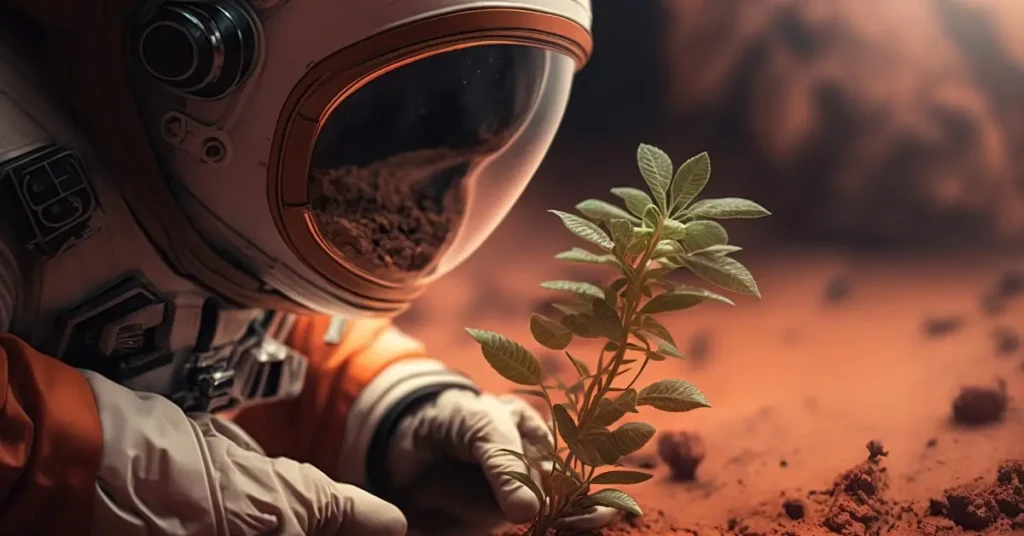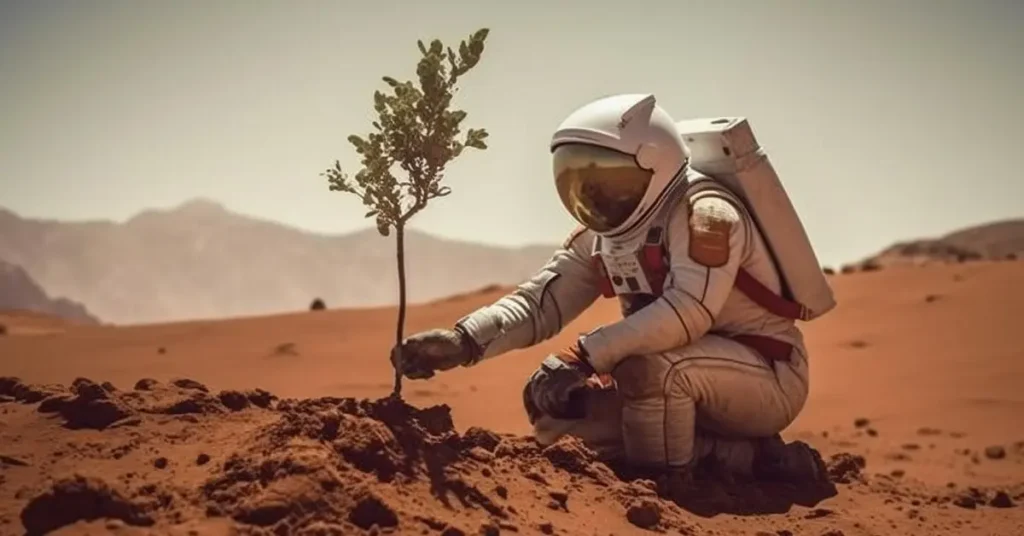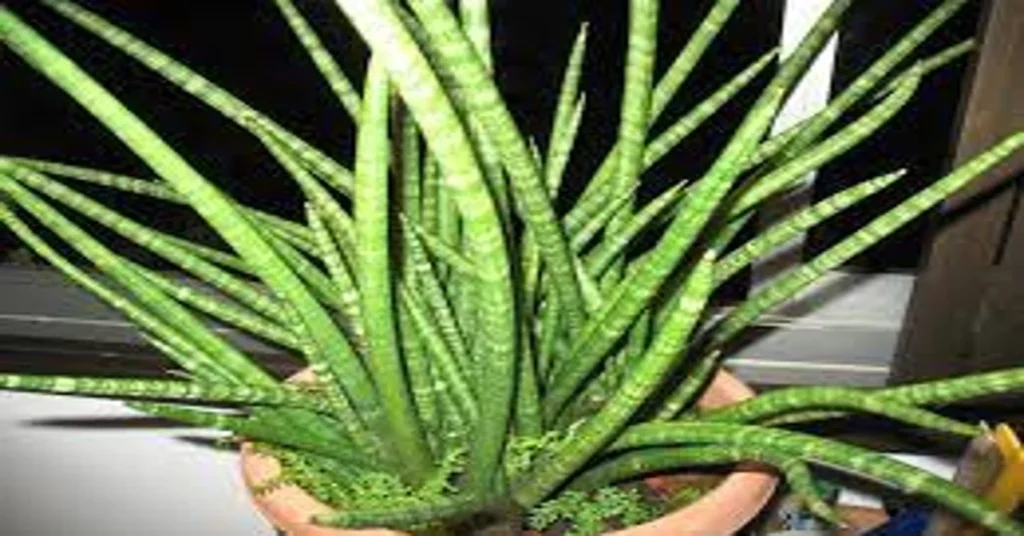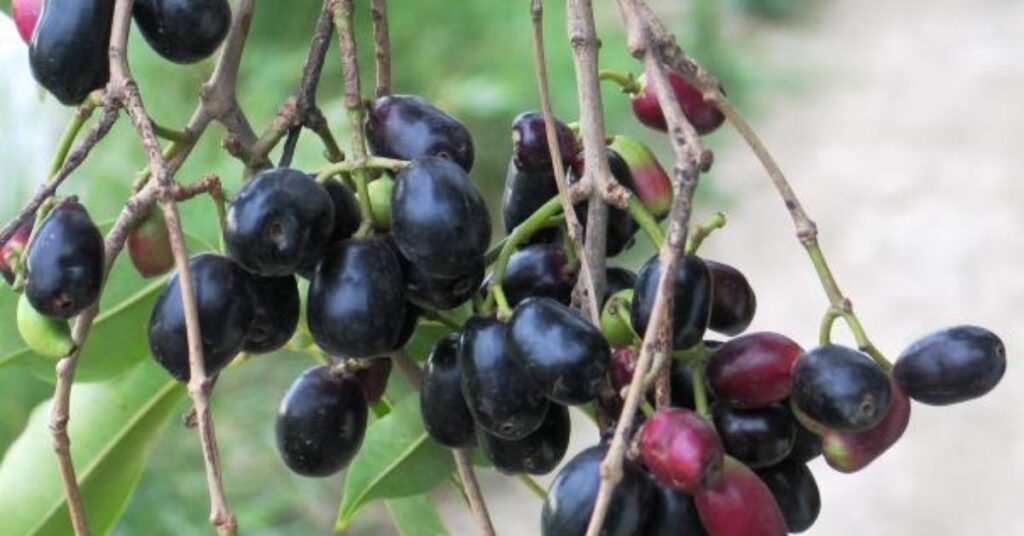Humanity’s fascination with Mars has grown exponentially, fueled by dreams of interplanetary exploration and potential colonization. One intriguing aspect of this cosmic curiosity is the possibility of growing plants on the Red Planet. Can Martian soil sustain life, and what challenges must be overcome for successful cultivation? Let’s embark on a journey to understand the complexities of Martian agriculture.

The Martian Landscape: A Hostile Environment
Mars presents a unique set of challenges for plant growth. With its thin atmosphere and harsh climate, including extreme temperatures and high levels of radiation, the Red Planet is far from an ideal farming location. However, scientists and researchers are exploring innovative solutions to make Martian agriculture a reality.
Soil Composition and Nutrient Availability
Analyzing Martian soil reveals a lack of essential nutrients found in Earth’s soil. This deficiency poses a significant obstacle for plant development. To address this, experiments involving nutrient-rich supplements and specially engineered soils are underway. Researchers aim to create a fertile environment that supports plant growth despite the inhospitable conditions.
Water, the Elixir of Martian Life
Water is a crucial element for plant survival, and Mars, with its arid landscape, lacks this fundamental resource. Initiatives to extract water from Martian subsurface ice are being explored, offering a potential solution to the water scarcity challenge. Understanding the dynamics of water distribution on Mars is pivotal for establishing sustainable agricultural practices.
Artificial Environments: Greenhouses on Mars
In the quest to overcome Martian challenges, the concept of greenhouses emerges as a promising solution. These controlled environments can regulate temperature, protect plants from radiation, and provide the necessary conditions for growth. Integrating technology with nature, greenhouse experiments aim to mimic Earth-like conditions, fostering plant life amidst the Martian extremes.
The Future of Martian Agriculture
As technology advances and our understanding of Mars deepens, the dream of cultivating plants on the Red Planet inches closer to reality. Overcoming the environmental hurdles requires collaborative efforts from scientists, engineers, and space enthusiasts. The prospect of sustaining life on Mars not only opens doors to exploration but also poses profound implications for the future of humanity.
Keywords: can plants grow on Mars, Martian agriculture, challenges of plant growth on Mars, cultivating life on the Red Planet, Mars colonization, sustainable agricultural practices on Mars.
Nurturing Hope: Pioneering Steps Towards Martian Agriculture
While the challenges of Martian agriculture are daunting, the ongoing research and experiments provide a glimmer of hope. Scientists are actively experimenting with various plant species to understand their adaptability to the Martian environment. Robotic missions equipped with plant growth chambers are crucial in gathering data and refining techniques for future human endeavors.
The Role of Microorganisms
Microorganisms play a pivotal role in Earth’s soil ecosystems, aiding plant growth through nutrient cycling. Researchers are exploring the introduction of specific microorganisms to Martian soil to create a more hospitable environment. This approach aims to establish a symbiotic relationship between plants and microorganisms, enhancing the soil’s fertility and promoting sustainable growth.
Genetic Modifications for Martian Resilience
Genetic engineering holds significant promise in developing plants that can withstand Martian challenges. Scientists are investigating genetic modifications that enhance a plant’s resistance to extreme temperatures, radiation, and nutrient deficiencies. These resilient plant varieties could be the key to establishing thriving agricultural systems on Mars.
Lessons from Analog Environments on Earth
Analog environments on Earth, such as deserts and high-altitude regions, share similarities with Martian conditions. Researchers are leveraging these earthly analogs to conduct experiments and gather insights into potential Martian agriculture strategies. These analog missions serve as crucial testing grounds for refining technologies and methodologies before deploying them in the actual Martian landscape.
Ethical Considerations and Planetary Protection
As we delve into the realm of Martian agriculture, ethical considerations come to the forefront. The potential introduction of Earth-based organisms to Mars raises questions about planetary protection and the preservation of Mars’ pristine environment. Striking a balance between scientific exploration and environmental responsibility is imperative for the sustainable development of Martian agriculture.

Sowing Seeds of Knowledge: Community Engagement in Martian Agriculture
Beyond the confines of research laboratories and space agencies, the success of Martian agriculture hinges on the involvement of a broader community. Engaging the public in the journey towards cultivating plants on Mars fosters awareness, support, and a shared vision for the future. Let’s explore the critical role of community involvement in this cosmic endeavor.
Educational Outreach: Planting the Seeds of Interest
Educational programs and outreach initiatives are instrumental in sparking interest and curiosity about Martian agriculture. Schools, science centers, and online platforms can serve as hubs for disseminating knowledge about the challenges and innovations associated with growing plants on Mars. By nurturing a fascination for space exploration, we inspire the next generation of scientists, engineers, and space enthusiasts.
Citizen Science Projects: Bridging Gaps in Research
The collective power of citizen science plays a crucial role in expanding the scope of research. Enthusiasts worldwide can contribute to Martian agriculture projects by participating in data collection, analysis, and even small-scale experiments. This collaborative approach not only accelerates the pace of discovery but also creates a sense of shared responsibility for the success of interplanetary initiatives.
Sustainable Practices: A Blueprint for Martian Farming
As we envision the establishment of agricultural systems on Mars, the principles of sustainability come to the forefront. Community-driven discussions and initiatives can contribute valuable perspectives on sustainable farming practices, resource management, and waste reduction. The integration of diverse viewpoints ensures that Martian agriculture aligns with ethical and environmentally conscious practices.
Cultural Significance: Planting Roots Beyond Earth
Cultivating plants on Mars transcends scientific achievement; it carries cultural and symbolic significance. Artists, writers, and cultural influencers play a vital role in shaping the narrative around Martian agriculture. Through creative expressions, they contribute to a collective vision of a future where the Red Planet becomes a canvas for human resilience, innovation, and coexistence with nature.
Looking Ahead: Seeds of Possibility
As we reflect on the progress made in the first year of exploring Martian agriculture, the road ahead is filled with possibilities. Community engagement stands as a cornerstone, uniting people from diverse backgrounds in a shared pursuit of unlocking the secrets of life beyond Earth.
The journey towards cultivating plants on Mars is not a solitary endeavor but a collaborative odyssey that involves scientists, educators, citizens, and visionaries alike. Together, we sow the seeds of knowledge, curiosity, and hope, nurturing a collective consciousness that extends beyond our home planet.
Keywords: community engagement in space exploration, educational outreach for Martian agriculture, citizen science in interplanetary research, sustainable farming practices on Mars, cultural significance of Martian agriculture.
Conclusion: Cultivating a New Frontier
The dream of cultivating plants on Mars is not merely a scientific endeavor; it represents a pioneering step towards establishing a human presence beyond Earth. While challenges persist, the collective efforts of the global scientific community, space agencies, and private enterprises fuel the momentum towards turning this dream into reality.
As we celebrate the first anniversary of venturing into the realm of Martian agriculture, let us remain steadfast in our commitment to unlocking the secrets of life on the Red Planet. The journey is challenging, but the potential rewards extend far beyond the boundaries of our home planet. Together, we nurture the hope of turning Mars into a second home for life, where plants not only survive but thrive in the unique embrace of the Martian landscape.
Keywords: plant growth experiments on Mars, microorganisms in Martian soil, genetic modifications for Martian plants, analog environments for Martian agriculture, ethical considerations in space exploration.




